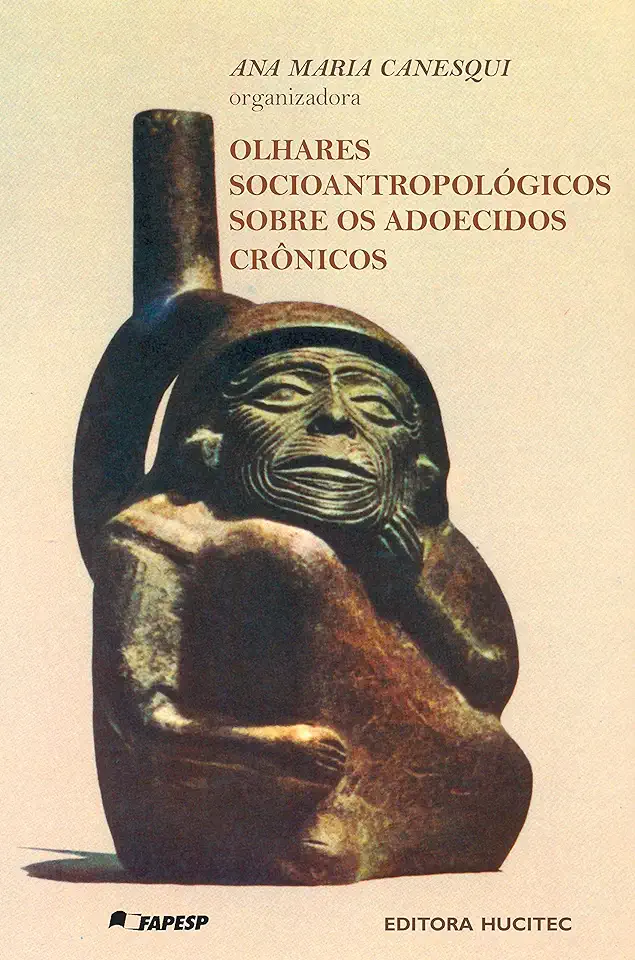
Socioanthropological Perspectives on the Chronically Ill - Ana Maria Canesqui
Socioanthropological Perspectives on the Chronically Ill: A Comprehensive Exploration of the Social and Cultural Dimensions of Chronic Illness
Introduction: Unveiling the Hidden Realities of Chronic Illness
In the realm of healthcare, chronic illness stands as a formidable challenge, affecting millions of individuals worldwide. Often overshadowed by acute conditions, chronic illnesses demand sustained attention due to their enduring nature and profound impact on individuals, families, and communities. This book, "Socioanthropological Perspectives on the Chronically Ill," delves into the intricate tapestry of social and cultural factors that shape the experiences of those living with chronic conditions.
Understanding the Social Context of Chronic Illness
Chronic illness transcends the boundaries of individual biology, deeply intertwining with social, cultural, and environmental factors. This book provides a comprehensive analysis of the social context of chronic illness, exploring how societal structures, cultural beliefs, and healthcare systems influence the experiences of individuals with chronic conditions. By shedding light on these intricate relationships, the book aims to foster a deeper understanding of the challenges faced by the chronically ill and empower healthcare professionals, policymakers, and society at large to develop more effective and compassionate approaches to care.
Cultural Constructions of Illness and Healing
Cultural beliefs and practices play a pivotal role in shaping how individuals perceive, experience, and respond to chronic illness. This book delves into the diverse cultural constructions of illness and healing, examining how different societies conceptualize chronic conditions, attribute causality, and employ traditional healing practices. By exploring these cultural variations, the book highlights the importance of cultural sensitivity in healthcare delivery and encourages healthcare professionals to engage in culturally competent practices that respect and incorporate patients' cultural beliefs and values.
The Impact of Chronic Illness on Individuals and Families
Chronic illness profoundly affects not only the individual but also their family and social network. This book provides a comprehensive analysis of the personal and familial consequences of chronic illness, exploring the emotional, psychological, social, and economic challenges faced by individuals and their families. By shedding light on these multifaceted impacts, the book emphasizes the need for holistic and family-centered approaches to care that address the multifaceted needs of those affected by chronic illness.
Healthcare Systems and the Chronically Ill
Healthcare systems play a critical role in shaping the experiences of individuals with chronic illness. This book critically examines the strengths and limitations of various healthcare systems in addressing the needs of the chronically ill. By analyzing healthcare policies, service delivery models, and patient-provider interactions, the book identifies gaps and challenges in current healthcare systems and proposes innovative approaches to improve the quality of care for individuals with chronic conditions.
Conclusion: Towards a More Compassionate and Equitable Society
"Socioanthropological Perspectives on the Chronically Ill" concludes by emphasizing the urgent need for a more compassionate and equitable society that recognizes and addresses the unique challenges faced by individuals with chronic illness. By integrating socioanthropological insights into healthcare practices, policymakers, and society at large can work together to create a healthcare system that is responsive to the needs of the chronically ill, promoting their well-being and ensuring their full participation in society.
Why You Should Read This Book
"Socioanthropological Perspectives on the Chronically Ill" is a must-read for anyone seeking a deeper understanding of the social and cultural dimensions of chronic illness. With its comprehensive analysis, thought-provoking insights, and practical implications, this book is an invaluable resource for healthcare professionals, policymakers, researchers, and anyone committed to improving the lives of individuals living with chronic conditions.